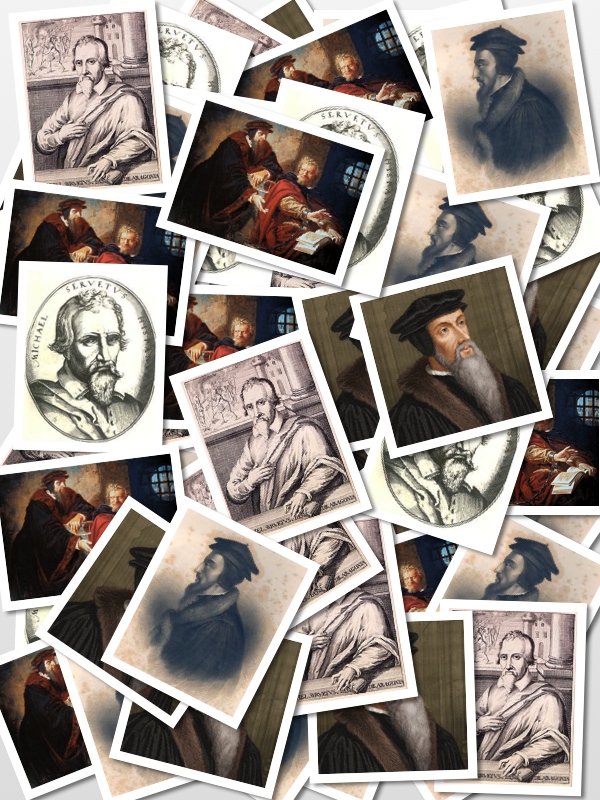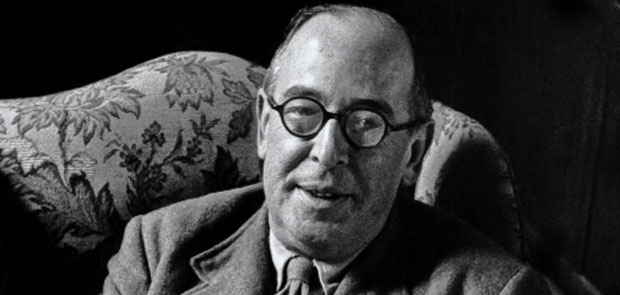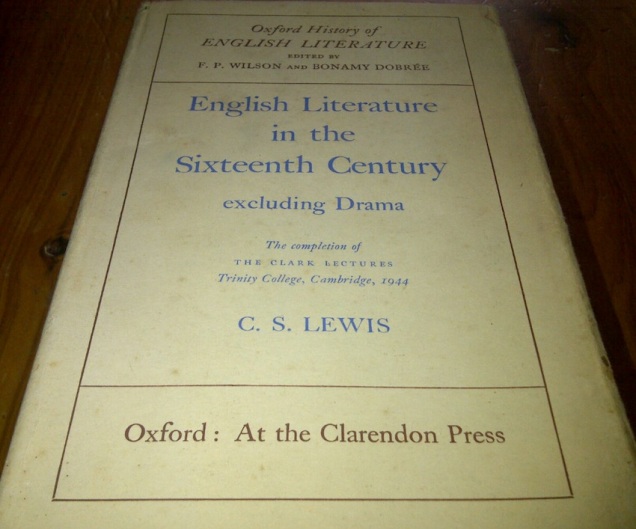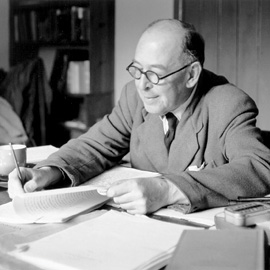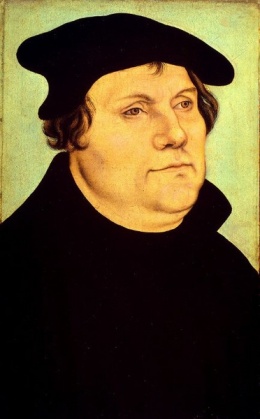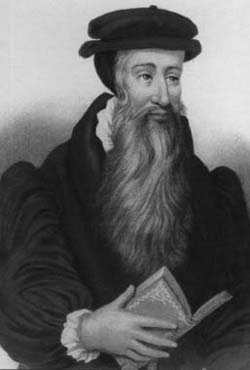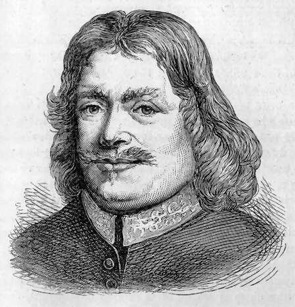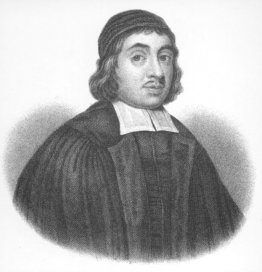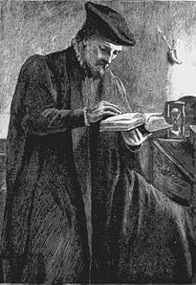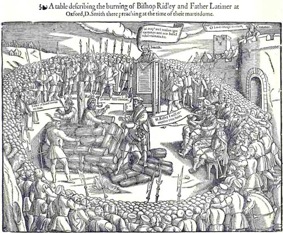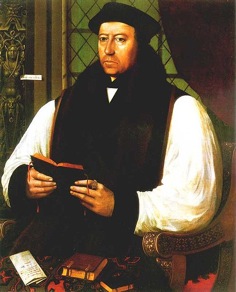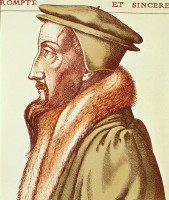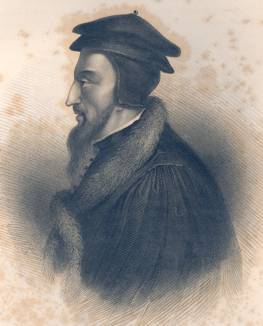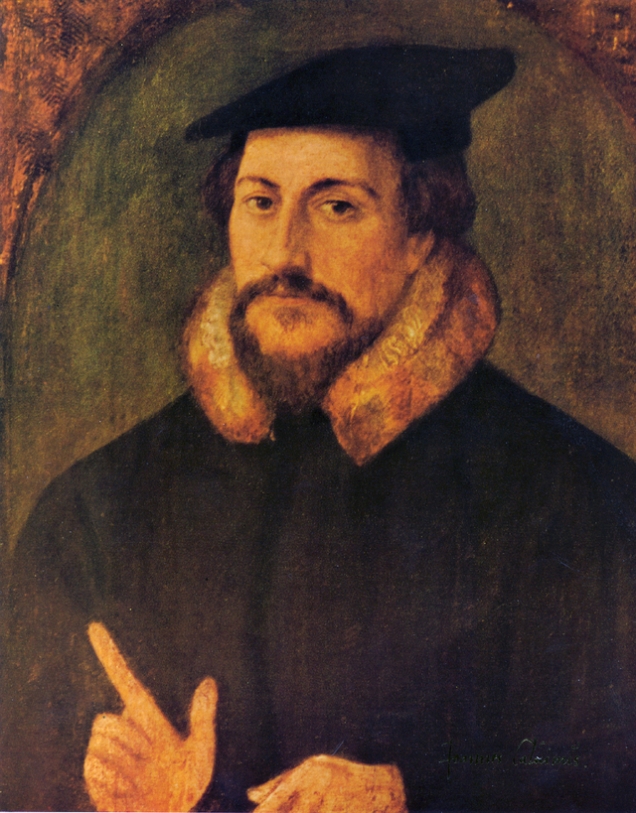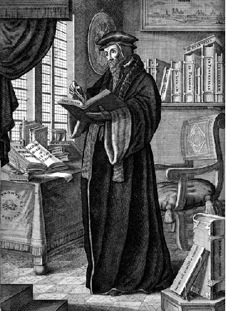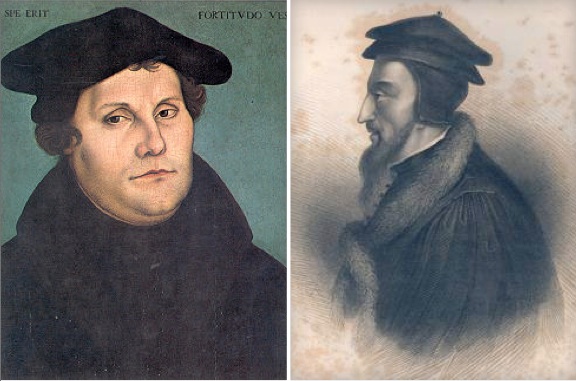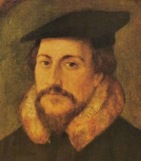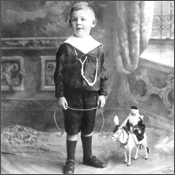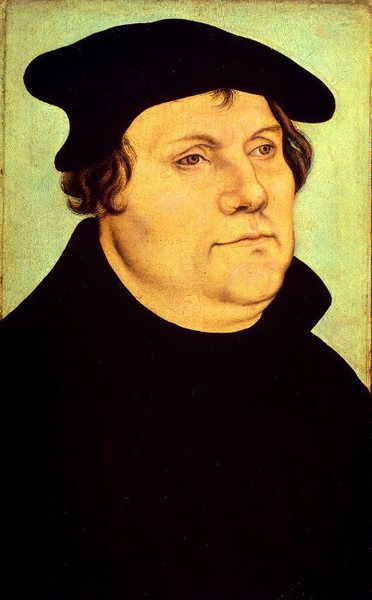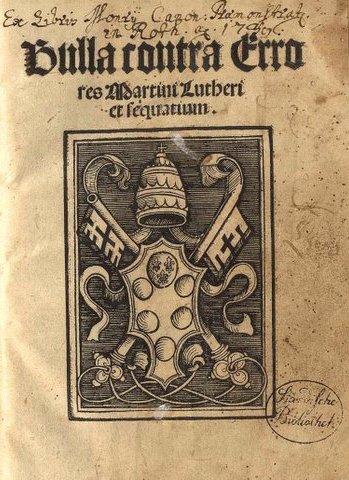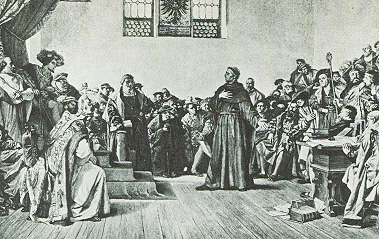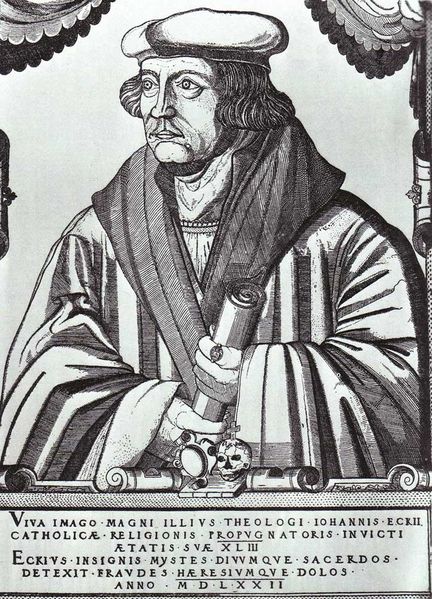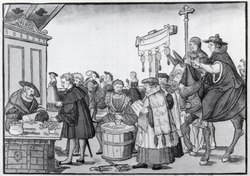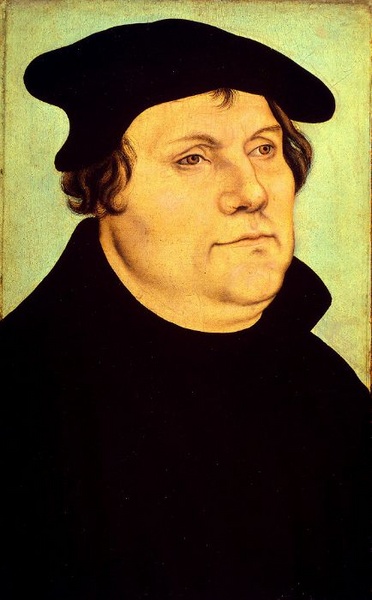A few years ago I was invited to address nearly 2000 people on the subject of Judaism. The message was part of a series on different belief systems and how Christianity interacts with those systems. I accepted the challenge even though I am far more comfortable discussing the atheism that I grew up with.
I have been enjoying (and studying) the Hebrew Scriptures for forty years and am very conscious that it is because of the world’s most influential Jew, Jesus of Nazareth, that I, along with millions of other Gentiles, have come to love the writings of Moses, the Psalms of David and the prophecies of Isaiah.
We have found Him!
As I did some additional background reading I came upon a fascinating list of influential Jews who declared their belief that Jesus is indeed the promised Messiah.
The following examples may go some way to counter the argument that it is only ignorant or poorly educated Jews who believe that Jesus is the Messiah, or at least not those familiar with real Judaism.
It is a joy to know, indeed, that these Jewish believers can say, along with Philip and the first Jewish believers, ‘We have found him, of whom Moses in the Law and also the Prophets wrote – Jesus of Nazareth!’ (John 1:45)
Obviously this is merely a partial list but it may be of real interest to others who are on a spiritual journey and are considering the claims of Christianity. Of further interest are the deeply moving testimonies of many Jews who have recently accepted Jesus as the Messiah. Here’s an example on youtube.
1506 – Alfonso de Zamora – Rabbi
Alfonso de Zamora, a Rabbi, publicly declared his faith in Messiah Jesus in 1506. Working with Paul Nunez Coronel and Alfonso d’Alcala, two other Jewish believers, he uses his knowledge of Hebrew, Aramaic, Chaldean, and other languages to help develop a six-volume multilingual work known as the Polyglot Bible. He also writes a Hebrew grammar, a Hebrew dictionary, a dictionary of the Old Testament, and a treatise on Hebrew spelling.
1530 – Immanuel Tremellius – Hebrew Scholar, University Professor
Immanuel Tremellius came to faith in Messiah around 1530 and became Professor of Hebrew at Cambridge University in 1548. He later becomes Professor of Theology at Heidelberg, where he produces a Latin Old Testament that is published in Frankfurt in the 1570s and London in 1580. With Theodore Beza’s Latin New Testament attached to it, the Tremellius Bible is the Protestant contender against the Vulgate issued by Pope Sixtus V in a Reformation vs. Counter Reformation battle of Latin bibles.
1546 – Johannes Isaac – Hebrew Scholar, University Professor
Johannes Isaac came to faith in 1546. He became a professor of Hebrew at the University of Cologne.
1621 – Malachi ben Samuel – Polish Rabbi
Malachi ben Samuel, a Polish Rabbi, comes to faith in Messiah around 1621, several years after being impressed by a Yiddish translation of the New Testament. He is particularly surprised that marginal references to the Hebrew Scriptures are not distorted, as he had been told they would be. He writes, “My heart became full of doubt. No man can believe the pain and ache that assailed my heart. I had no rest day or night…. What should I do? To whom should I speak of these things?” He finally feels he has no choice but to believe.
1625 – Giovanni Jonas – Hebrew Scholar
Giovanni Jonas came to faith in Poland in 1625 and, working as a librarian, writes a Hebrew translation of the Gospels and a Hebrew-Chaldee lexicon.
1656 – Esdras Edzard – Hebrew Scholar
Esdras Edzard, who grew up studying Hebrew and the Talmud, and then studied in Leipzig, Wittenberg, and Basel, earns a doctorate and begins working among the Jews of Hamburg. He provides free instruction in Hebrew, helps the poor, and explains faith in Messiah to all. From 1671 to 1708 Edzard leads 148 Jewish people to faith. He emphasizes further study for those coming to faith, and almost all of those who joined him continue in faith.
1709 – John Xeres – Talmudic Scholar
John Xeres counteracts the slur that Jewish believers in Jesus are not well educated in Judaism by emphasizing his Talmudic studies. Others on the list of learned Jewish believers include Ludwig Compiegne de Veil, Friedrich Albrecht Augusti, Paul Weidner, Julius Conrad Otto, Johann Adam Gottfried, and more.
1722 – Rabbi Judah Monis
Rabbi Judah Monis, after becoming the first Jewish individual to receive a college degree in America (M.A., Harvard, 1720), publicly embraces faith in Messiah Jesus. In 1735 he publishes a Hebrew grammar, the first to be published in America.
1758 – Seelig Bunzlau – German Rabbi
Seelig Bunzlau, a revered German Rabbi, announces from the pulpit of his synagogue that he is has placed his faith in Messiah.
1781 – William Herschel – Scientist & Astronomer
William Herschel, a Jewish believer, using a telescope he designed and constructed, discovers the planet Uranus. Herschel also fixes the positions of 2,500 nebulas, of which only 103 had previously been known. He infers the existence of binary stars, and then identifies 209 such pairs of stars that revolve around a common center. He discovers the infrared rays of the sun, defines and explains the composition of the Milky Way, and makes many other discoveries.
1782 – Joseph von Sonnenfels, Distinguished Jurist
Joseph von Sonnenfels, a distinguished jurist in Vienna and a Jewish believer, lays out the principles for the Edict of Toleration regarding Jews that Austrian emperor Joseph II announces.
1809 – Joseph Samuel Frey – Hebrew teacher and Cantor
Joseph Samuel Frey, a Hebrew teacher and cantor, organizes the London Society for Promoting Christianity Among the Jews. He later comes to the United States and continues efforts to organize Jewish believers.
1810 – August Neander (David Mendel) – Professor at the University of Berlin
August Neander (born David Mendel) becomes Professor of Church History at the University of Berlin, where the influential Friedrich Schleiermacher also teaches. One observer comments on the “sad and singular sight” of “Schleiermacher, a Christian by birth, inculcating in one lecture room with all the power of his mighty genius, those doctrines which led to the denial of the evangelical attributes of Jesus.” Meanwhile, in another room “Neander, by birth a Jew, preached and taught salvation through faith in Messiah the Son of God alone.” Neander writes many scholarly books, including the multivolume General History of the Christian Religion and Church. Before his death in 1850 he goes blind, but dictates notes for the last section of his church history on the last day of his life.
1822 – Isaac da Costa – Author & Defender of European Jewry
Isaac da Costa, his wife Hannah, and his friend Abraham Capadose come to faith in Holland. Da Costa becomes Holland’s leading poet and Capadose a leading physician; da Costa’s book, Accusations Against the Spirit of the Century, attacks the rationalistic materialism that is coming to dominate Holland and demands that Messiah again become the center of national life. Da Costa writes often of Messiah and also his Jewish heritage: “In the midst of the contempt and dislike of the world for the name of Jew I have ever gloried in it.” The Jewish Encyclopedia comments about him, “His character, no less than his genius, was respected by his contemporaries. To the end of his life he felt only reverence and love for his former co-religionists.”
1825 – Rabbi Michael Solomon Alexander – English Rabbi
Rabbi Michael Solomon Alexander comes to faith Messiah in 1825 after concluding that Rabbis had concealed the truth about Jesus; seven years later he becomes Professor of Hebrew and Rabbinical Literature at King’s College, London. His name comes first on the long list of those who signed a “protest of Jewish Christians in England” against the false accusation that Jews used Christian blood in Passover rites. When the British Parliament endows the position of Bishop of Jerusalem, the appointment goes to Alexander; in Jerusalem, he opens both an institution for the training of Jewish believers and a hospital for the sick Jewish residents of Jerusalem.
1826 – Felix Mendelssohn – Composer
Felix Mendelssohn, Jewish believer and grandson of the great Jewish philosopher Moses Mendelssohn, writes his overture to A Midsummer Night’s Dream. He brings new public attention to Bach’s music, composes the Elijah and St. Paul oratorios, and arouses the resentment of anti-Semites by helping Jewish musicians. He composes the music to “Hark the Herald Angels Sing” and harmonizes “Now Thank We All Our God,” among other hymns.
1844 – Joachim Raphael Biesenthal –
Joachim Raphael Biesenthal, a Jewish believer, begins 37 years of ministry within the Jewish communities of Germany. He uses the knowledge gained in Talmudic academies and while earning a doctorate at the University of Berlin to write commentaries on many New Testament books as well as a History of the Christian Church that shows the strong Jewishness of the early church.
1847 – Carl Paul Caspari – University Professor
Carl Paul Caspari, a Jewish believer, begins teaching at the University of Christiana in Norway. He writes commentaries on many Old Testament books and, at a time when Christianity is under attack, stands for orthodoxy and becomes known over the following 45 years as “the teacher of all Scandinavia.” He also writes an Arabic grammar that becomes a standard work.
1859 – David Gustav Hertz – Advocate for Judicial Reform
Lawyer David Gustav Hertz becomes a municipal official in Hamburg, Germany, and holds various positions over the next 45 years. He works for reform of the justice and prison systems at a time when doing so put an individual at risk from those with a vested interest in corruption.
1863 – Daniel Landsmann, a Jerusalem Talmudic Scholar
Daniel Landsmann, a Jerusalem Talmudic scholar came to faith in 1863, is almost killed-but by his own people, angered that someone well educated in Jewish tradition should become a believer in Jesus. His faith in Messiah began when he finds upon the street a page in Hebrew torn from a book. He loves what he reads, and when he later finds out that it is the Sermon on the Mount, he thinks differently about Jesus than he did before. When he tells all that he believes Jesus is the Messiah, his wife leaves him, one fanatical group puts spikes in his hands, and another tries to bury him alive. He finally moves to New York City and, with a wealth of Talmudic knowledge and a humble spirit, moves many to consider Messiah.
1868 – Benjamin Disraeli, Prime Minister of England
Benjamin Disraeli, a Jewish believer, becomes Britain’s prime minister. Disraeli, both the Conservative Party leader and the author of many popular books, emphasizes Christianity’s dependence on Judaism: “In all church discussions we are apt to forget the second Testament is avowedly only a supplement. Jesus came to complete the ‘law and the prophets.’ Christianity is completed Judaism, or it is nothing. Christianity is incomprehensible without Judaism, as Judaism is incomplete without Christianity.” He hopes that Jews “will accept the whole of their religion instead of only the half of it, as they gradually grow more familiar with the true history and character of the New Testament.” Throughout his career in Parliament he very publicly attacks those with anti-Semitic views, often with biting wit, and shows himself to be a proud Zionist. In a statement to Queen Victoria, he said: “Your Majesty, I am the blank page between the Old Testament and the New”.
1870 – Isaac Salkinson, Hebrew Scholar
Isaac Salkinson of Vienna translates Milton’s Paradise Lost into Hebrew. Over the next 15 years he translates into Hebrew Othello, Romeo and Juliet, and then the Greek New Testament.
1877 – Joseph Schereschewsky, Scholar & Translator
Joseph Schereschewsky, a former Lithuanian Rabbinical student, is consecrated as the Episcopal Church’s Bishop of Shanghai. In 1879 he lays the cornerstone for St. John’s College, the first Protestant college in China. Regarded by the Academic community as one of the most learned Orientalists in the world, he also translates the Bible into both Mandarin and colloquial Chinese and stays at his translation tasks even though partially paralyzed and unable to speak.
1883 – Alfred Edersheim, Biblical Scholar
Alfred Edersheim finishes seven years of writing The Life and Times of Jesus the Messiah, which becomes the standard scholarly work in English for the next 100 years. Born in Austria, he serves as a minister in Scotland and a lecturer at Oxford. Four other major books of Biblical scholarship would flow from his pen.
1885 – Joseph Rabinowitz, Talmudic scholar and Lawyer
Talmudic scholar and lawyer Joseph Rabinowitz comes to faith in Messiah Jesus in 1885, and, through writings and lectures, begins influencing Russian Jews to become “Sons of the New Covenant.” He draws up a list of 12 articles of faith, patterned after Maimonides’s 13 principles, but proclaiming Jesus as the Messiah. He forms one of the early Messianic Congregations.
1892 – Leopold Cohn, Hungarian Rabbi
Leopold Cohn, a Hungarian Rabbi, comes to believe that Jesus is the Messiah. An outraged Jewish community forces him to flee, so he studies at divinity school in Scotland, emigrates to the United States with his family, and begins to hold meetings in a heavily Jewish section of Brooklyn that demonstrate that Jesus is the Messiah. Later he opens a medical clinic and a kosher food kitchen, and delivers free coal to the Jewish poor. The outreach he started grew into “Chosen People Ministries”, an International organization.
1892 – Louis Meyer, Doctor & Surgeon
Louis Meyer, a Jewish Doctor & Surgeon and immigrant to Cincinnati from Germany, come to faith. He goes on to receive a degree from an evangelical Seminary in Pittsburgh. His scholarship is recognized and he becomes one of the editors of The Fundamentals, the 90 essays produced between 1910 and 1915 to explain the difference between Biblical faith and Liberal Protestantism.
1894 – David Ginsburg, Hebrew Scholar
An emigrant from Poland to England, David Ginsburg, publishes a scholarly work including (in 1894) The Massoretic-Critical Text of the Hebrew Bible.
1904 – Max Wertheimer, Reform Rabbi
Max Wertheimer, after serving for 10 years as a Rabbi in Dayton, Ohio, publicly declares his faith in Messiah. He then goes to an evangelical seminary, eventually becoming a Pastor. He recalls, “I had tried to get some tangible comfort out of the Talmud, Mishnah, and Rabbinical doctrines, but found none that satisfied my soul’s hunger and longings.” In studying the New Testament, though, he sees that the Christian doctrines he had derided as illogical and un-Jewish are sensible and truly Jewish.
1909 – Isaac Lichtenstein, Chief Rabbi of Hungary
In 1909, Isaac Lichtenstein dies, leaving writings explaining how he read a copy of the New Testament after 40 years of work as a Rabbi in Hungary and was impressed by “the greatness, power, and glory of this book, formerly a sealed book to me. All seemed so new to me and yet it did me good like the sight of an old friend…. I had thought the New Testament to be impure, a source of pride, of selfishness, of hatred, and of the worst kind of violence, but as I opened it I felt myself peculiarly and wonderfully taken possession of. A sudden glory, a light flashed through my soul. I looked for thorns and found roses; I discovered pearls instead of pebbles; instead of hatred, love; instead of vengeance, forgiveness; instead of bondage, freedom.”
A letter to his son, a doctor, reports that “From every line in the New Testament, from every word, the Jewish spirit streamed forth light, life, power, endurance, faith, hope, love, charity, limitless and indestructible faith in God.” Others, hating the idea of a long-term Rabbi turning “renegade,” attack Lichtenstein. His reply: “I have been an honored Rabbi for the space of 40 years, and now, in my old age, I am treated by my friends as one possessed by an evil spirit, and by my enemies as an outcast. I am become a butt of mockers, who point the finger at me. But while I live I will stand on my tower, though I may stand there all alone. I will listen to the words of God.”
1913 – Arthur Kuldell, Messianic Jewish Leader
Arthur Kuldell convenes a gathering of Jewish believers in Pittsburgh who establish the “Hebrew Christian Alliance of America”. Kuldell explains, “The Alliance is not a lodge. It is not a society organized for the purpose of aiding its members to the exclusion of others. It is not here to defame and slander the Jew behind his back. It is an organization that breathes the spirit of Messiah. It is actuated by the tenderest love for Israel.”
1921 – Max Reich, Professor and Zionist
Max Reich, a Jewish believer and Professor of Biblical Studies combats anti-Jewish propaganda, writing that “the so-called ‘Protocols of the Learned Elders of Zion’ was one of the basest forgeries ever fathered on the Jewish people. Jewish believers [in Messiah] will stand by their slandered nation at this time…. Jewish believers utterly detest the … unscrupulous Jew-haters, who remain anonymous, bent on stirring up racial strife and religious bigotry.”
1922 – Niels Bohr, Nobel Prize for Physics
Niels Bohr wins the Nobel Prize for Physics for his work on atomic structure. In 1939 he visits the United States and spreads the news that German scientists are working on splitting the atom. The United States responds with the Manhattan Project, from which the atomic bomb emerges. In 1942 he escapes from German-occupied Denmark via a fishing boat to Sweden, and leaves there by traveling in the empty bomb rack of a British military plane. He makes it to the United States and works on the atomic bomb at Los Alamos.
1927 – Henri Bergson, winner of the Nobel Prize for Literature
Henri Bergson wins the Nobel Prize for Literature. The French philosopher wrote books including An Introduction to Metaphysics (which develops a theory of knowledge) and Creative Evolution (which concludes that Darwinian mechanisms cannot explain life’s expansiveness and creativity). During the 1920s Bergson becomes a believer in Jesus, and in his final book, The Two Sources of Morality and Religion, describes Judeo-Christian understanding as the culmination of human social evolution. In 1937 he explains that his reflections led him to faith in Jesus, “in which I see the complete fulfillment of Judaism,” but he was reluctant to do anything that would separate him from his own Jewish people, because he was foreseeing “the formidable wave of anti-Semitism which is to sweep over the world. I wanted to remain among those who tomorrow will be persecuted.”
1930 – Haham Ephraim ben Joseph Eliakim, a Rabbi in Tiberias
The year 1930 saw the funeral of Haham Ephraim ben Joseph Eliakim, a Rabbi in Tiberias, Jewish Palestine, who after studying biblical prophecies believes that Jesus is the Messiah. Eliakim undergoes tremendous harassment from his former colleagues. He is buried in Jerusalem alongside a Christian Arab, with one reporter noting that “Jew and Arab were laid one beside the other, and Jews and Arabs were standing with bowed heads by the two open graves, touched and softened the one toward the others.”
1933 – Sir Leon Levison, Messianic Jewish Leader
Sir Leon Levison, founder and head of the International Hebrew Christian Alliance, rallies Jewish believers in 1933 to oppose Hitler. Levison states that there are 2.35 million Jews in Germany: 600,000 still identifying with Rabbinical Judaism and one and three-quarter million believers in Jesus of Jewish descent who go back to the second, third and fourth generation. Both groups, he notes, “are treated as Jews and are subject to vicious discrimination.” Jewish Christians also face discrimination from their own people: “If they apply to Jewish Relief agencies, they are told they must abandon their belief in Jesus.”
1938 – Morris Zeidman, Messianic Jewish Leader
Morris Zeidman of the “Hebrew Christian Alliance of America” appeals for help for the Jews and Jewish believers of Poland, Germany, and Austria, where “sorrow is turning into despair. They can see no hope, not a gleam of light or kindness anywhere…. We must help, if we have to sacrifice a meal a day. Surely those of us who eat three meals a day can afford to spare the price of one meal for our persecuted brethren in Central Europe.” Zeidman was also well known for his relief work among the poor in Toronto and across Canada during the Depression.
1943 – Israel Zolli, Chief Rabbi of Rome
Israel Zolli served as Professor of Hebrew at the University of Padua from 1927 to 1938, then as Chief Rabbi of Rome. In that position he helps to save about 4,000 Roman Jews as the Nazis enter Rome. Posing as a structural engineer, he enters the Vatican and asks Pope Pius XII to protect Rome’s Jews. He offered himself as a hostage in return for the safety of the Jewish community. The pope makes churches, monasteries, convents, and the Vatican itself sanctuaries for them (though it may be argued that he did little for Jews outside Italy). Zolli publicly proclaims his faith in Messiah in 1945. He said: “No one in the world ever tried to convert me . . . (my faith) was a slow evolution, altogether internal” Asked why he has “given up the synagogue for the church”, Zolli replies, “I have not given it up. Christianity is the completion of the synagogue, for the synagogue was a promise, and Christianity is the fulfillment of that promise”, “Once a Jew always a Jew”. When asked if he believes that Jesus is the Messiah, he says, “Yes, positively. I have believed it many years. And now I am so firmly convinced of the truth of it that I can face the whole world and defend my faith with the certainty and solidity of the mountains.”
As a result, Rabbinical Jewish leaders call him a heretic, excommunicate him, proclaim a fast of several days in atonement for his “treason,” and mourn him as one dead. Zolli responds, “When my wife and I embraced the church we lost everything we had in the world. We shall now have to look for work: and God will help us to find some” Zolli would become a writer and teacher.
1951 – Karl Stern, University Professor and Neuropsychiatrist
Karl Stern, an emigrant from Nazi Germany to Canada, a noted neuropsychiatrist and Jewish believer, publishes his autobiography, The Pillar of Fire. One of his McGill University post-war Jewish students, Bernard Nathanson, who would go on to a Medical career, recalls him as “a great teacher; a riveting, even eloquent lecturer in a language not his own, and a brilliant contrarian spewing out original and daring ideas as reliably as Old Faithful. I conceived an epic case of hero-worship…. There was something indefinably serene and certain about him.” When Nathanson reads The Pillar of Fire, he realizes that Stern “possessed a secret I had been searching for all my life, the secret of the peace of Messiah.”
1953 – Dr. Boris Kornfeld, Medical Doctor, hero of the Gulag
Dr. Boris Kornfeld, imprisoned in a Soviet concentration camp for political reasons, talks with a devout Christian and comes to believe in Messiah. In his position as Doctor of the camp, he tries to help starving prisoners by refusing to sign papers that will send them to their deaths, and he reports to the camp commandant an orderly who is stealing food from prisoners. One day he talks at length about Messiah with a patient who has just been operated on for cancer. That night the orderly has his revenge and Dr. Kornfeld is murdered, but the patient ponders his words, becomes a Christian, and eventually writes about Kornfeld and conditions in the Gulag. The patient’s name: Alexander Solzhenitsyn.
1968 – Ernest Cassutto, Holocaust Survivor, Founder of Congregation of Jewish Believers
Ernest Cassutto, of Sephardic Jewish heritage, establishes Emmanuel Hebrew Christian Congregation near Baltimore, Maryland.
Casutto was a Holocaust survivor who had lost his parents and fiance during the war.
1974 – Howard Phillips, Chairman of the U.S. Office of Economic Opportunity
Howard Phillips, former chairman of the U.S. Office of Economic Opportunity, founds the Conservative Caucus. While researching, he runs across biblical perspectives on public policy, and that leads to his coming to faith. He says, “I began to spend more time studying the Scripture, both Old and New Testament, and began to come to grips with the constantly mentioned subject of blood sacrifice as the basis for atonement for sin where God was concerned. The ultimate blood sacrifice for sin, obviously, is Jesus. I committed my life to Him as Lord and Savior”
1976 – Dr. David Block, Professor of Applied Mathematics and Astronomy
Dr. David Block, a professor of Applied Mathematics and Astronomy in South Africa, becomes a believer in Messiah. He writes, “I’d listen in shul as the Rabbis expounded how God was a personal God and how God would speak to Moses, to Abraham, to Isaac and to Jacob, and wonder how I fit into all of it. And by the time I entered university I became concerned over the fact that I had no assurance that God was indeed a personal God…. Where was the personality and the vibrancy of a God who could speak to David Block? If God is truly God, I reasoned, then why had he suddenly changed his character?”
A Christian colleague tells Block that a minister will be able to answer his questions; he reports, “My parents had taught me to seek answers where they may be found, and so I consented to meet with this Christian minister. [He] read to me from the New Testament book of Romans where Paul says that Yeshua (Jesus) is a stumbling block to Jewish people, but that those who would believe in Yeshua would never be ashamed. Suddenly it all became very clear to me: Yeshua had fulfilled the messianic prophecies in the Hebrew Scriptures, such as where the Messiah would be born and how he was to die…. I knew that Jesus was the Messiah and is the Messiah. And I surrendered my heart and my soul to Him that day.”
He concludes, “It might seem strange to some that a scientist and a Jew could come to faith in Jesus. But faith is never a leap into the dark. It is always based on evidence. That was how my whole search for God began. I looked through my telescope at Saturn and said to myself, Isn’t there a great God out there? The logical next step was to want to meet this Designer face-to-face.”
1982 – Andrew Mark Barron, Aerospace Engineer
Aerospace engineer Andrew Mark Barron, raised in Conservative Judaism, comes to faith in Messiah. He writes that in college “I believed God existed because of the phenomenal order to the universe, yet I felt human beings were far too miniscule for His notice.” Reading the New Testament helps him to see that God “constructed us with souls that can be fed only by His own hand. Believing God cares is not intellectual suicide; believing that He doesn’t care is spiritual starvation.”
1986 – Mortimer Adler, Professor at the University of Chicago
Mortimer Adler, author of numerous books on philosophical topics, becomes a Jewish believer at age 84. A long-time professor at the University of Chicago, he pushes for a “great books” and “great ideas” curriculum and writes popular works such as How to Read a Book (1940), The Common Sense of Politics (1971), and Six Great Ideas (1981). He writes an autobiography in 1977, Philosopher at Large, but writes another 15 years later (A Second Look in the Rearview Mirror: Further Autobiographical Reflections of a Philosopher at Large) that explains his coming to faith in Jesus. “We have a logical, consistent faith,” he says. “In fact, I believe [faith in Messiah] is the only logical, consistent faith in the world.”
1990 – Bernard Nathanson, Medical Doctor
In the year 1969 Dr. Bernard Nathanson, former student of Karl Stern, a noted Neuropsychiatrist, runs the largest abortion clinic in the world, and co-founds the National Association for the Repeal of Abortion Law. After being involved directly or indirectly in over 75,000 abortions (including one of his own child). In the late 1970s he does a complete turn-around and becomes a leading pro-life advocate and produces an effective video, The Silent Scream. Contact with Christian pro-life workers gets him thinking about the source of their dedication: “They prayed, they supported and encouraged each other, they sang hymns of joy…. They prayed for the unborn babies, for the confused and pregnant women, and for the doctors and nurses in the clinic…. And I wondered: How can these people give of themselves for a constituency that is (and always will be) mute, invisible, and unable to thank them?” Around 1990 Nathanson becomes a believer in Jesus.
1993 – Jay Sekulow, Attorney
Jay Sekulow, chief counsel for the American Center for Law and Justice, successfully argues the Lambs Chapel case before the U.S. Supreme Court; the Court states that religious groups cannot be discriminated against in the use of public facilities made available to other groups. Sekulow appears before the Supreme Court numerous times in defense of religious freedom, and writes about his own religious liberation as he tried to understand the description of the “suffering servant” in chapter 53 of Isaiah: “I kept looking for a traditional Jewish explanation that would satisfy, but found none. The only plausible explanation seemed to be Jesus. My Christian friends were suggesting other passages for me to read, such as Daniel 9. As I read, my suspicion that Jesus might really be the Messiah was confirmed…. I’d always thought my cultural Judaism was sufficient, but in the course of studying about the Messiah who would die as a sin bearer, I realized that I needed a Messiah to do that for me.”
1997 – Lawrence Kudlow, Undersecretary of the Office of Management and Budget
Lawrence Kudlow expresses faith in Messiah after emerging from a battle with addiction. In the 1980s he served as undersecretary of US Office of Management and Budget. In 1994 The New York Times published a full-page article, “A Wall Street Star’s Agonizing Confession,” about Kudlow’s life and addiction to cocaine. He resigns from his $1-million-a-year job as chief economist at the Wall Street firm of Bear Stearns and later says, “As I hit bottom, I lost jobs, lost all income, lost friends, and very nearly lost my wife. I was willing to surrender and take it on faith that I had to change my life.” I started searching for God.” Then, “All of a sudden it clicked, that . . . Jesus died for me, too.” Kudlow is now chief economist for CNBC and a frequent writer of articles that make the science of economics understandable to readers.
2001 – Richard Wurmbrand – Prisoner of the Nazis and Communists
Richard Wurmbrand, born into a Jewish home in Europe and founder of The Voice of the Martyrs, dies at age 91. After becoming a believer in Romania in 1936 and then a pastor, Wurmbrand and his wife are arrested several times by the Nazi government. He evangelizes Russian soldiers who are prisoners of war and does the same with Russian occupation forces after August, 1944. Communist leaders imprison Wurmbrand in 1948, subject him to physical and mental torture, threaten his family, and finally imprison his wife as well. She is released in 1953 and he in 1956, but he is re-arrested in 1959 and sentenced to 25 years for preaching Scriptures that are contrary to Communist doctrine. Political pressure from Western countries leads to his release in 1964. The Wurmbrand family leaves Romania in 1965 and begins informing the world about persecution of Christians in that country and elsewhere. By the mid-1980s The Voice of the Martyrs has offices in 30 countries and is working in 80 nations where Christians are threatened.
This selection compiled by Mottel Baleston.
